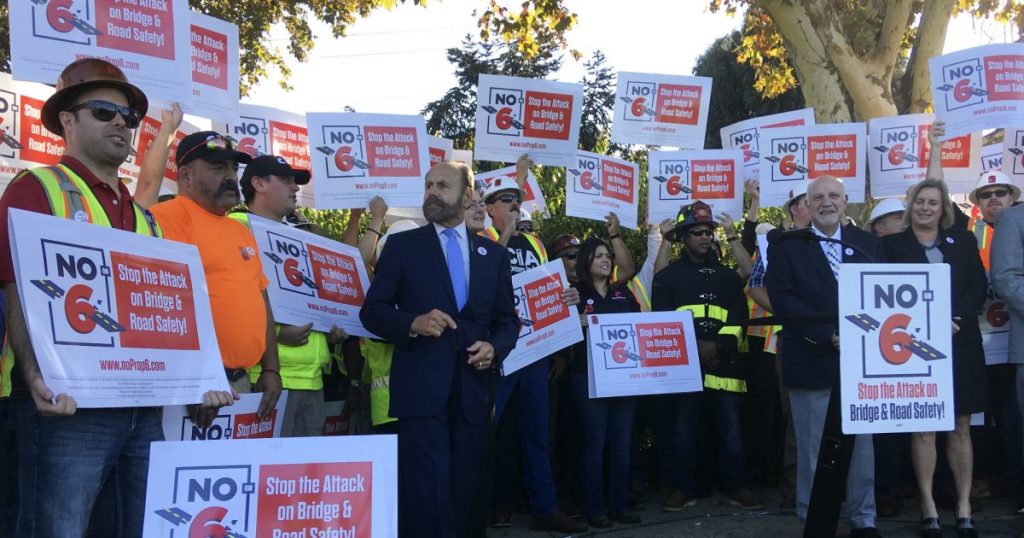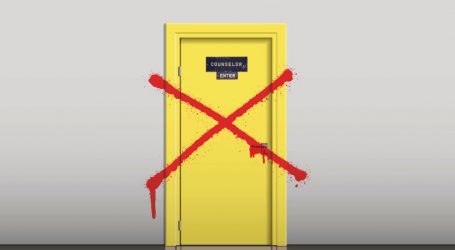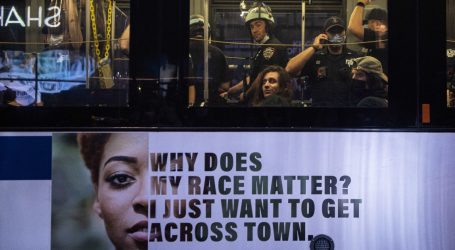Here’s Why You Should Keep an Eye on the Effort to Repeal California’s Gas Tax
But nationally, the group reported in October, with about half the roads in as poor a condition as California’s, the average motorist is losing $599 annually—a total of $130 billion nationally—as a result of driving on bad roads. That’s $244 less than the average Californian is paying.
So, even if California is only able to get road conditions on par with the national average, the average driver paying the expected $120 in additional state gas taxes will likely have a net savings of roughly that same amount.
“You put [those savings] into perspective and suddenly the numbers start to make sense,” California politics analyst Larry Gerston, professor emeritus of political science at San Jose State University, told HuffPost.
Republicans are against raising taxes and argue that the money for the road projects could be paid with other money in the state’s coffers if it reworked its budget.
But what may be more likely is that Republicans are convinced this issue will drive GOP voters to the polls and help keep GOP lawmakers in office.
Gerston pointed to sizable contributions to the tax repeal campaign from House Speaker Paul Ryan (R-Wis.), House Majority Leader Kevin McCarthy of Bakersfield and Rep. Devin Nunes, a Trump ally from the state’s Central Valley.
“Clearly, Paul Ryan, McCarthy, Nunes have all poured various amounts of money into supporting Prop. 6, so they believe that, in general, it’s a way of getting out the Republican vote,” Gersten said, though he’s skeptical that their effort will pay off. Those lawmakers might be, too: In the final run-up to the Nov. 6 elections, Gersten noted, Republicans have stopped pumping money into the Proposition 6 campaign.
The gas tax has also been one of the prominent themes on campaign signage this election cycle, reporters covering the races have noted.
Sanctuary state and gas tax themes prominent on several campaign signs this weekend. Many state party activists hanging on the hope these two issues will mobilize GOP voters in November, even though sanctuary state policy not likely to be on ballot. pic.twitter.com/kAqXKGTUKe
— Christine Mai-Duc (@cmaiduc) May 5, 2018
There’s some hope this could be an effective strategy because …
It remains to be seen how much this issue will drive voters to the polls, but the Public Policy Institute of California found in September that 52 percent of likely voters oppose Proposition 6, despite evidence it could cost them money. That’s an especially slim majority for such a blue state.
On the flip side, the survey found that 39 percent of voters—including 50 percent of Republicans and 33 percent of Democrats—plan to vote in favor of the repeal, while 8 percent remain undecided.
A number of Democratic candidates in key congressional races have broken from the Democrat majority on the issue and come out in favor of Proposition 6, likely in their own effort to appeal to voters.
They include Katie Porter of Irvine, Josh Harder of Turlock, Jessica Morse of Pollock Pines, Ammar Campa-Najjar of east San Diego County and Andrew Janz in the San Joaquin Valley.
The issue has emerged most strongly in Porter’s Orange County district race against GOP Rep. Mimi Walters, who accused her opponent of flip-flopping on the issue in an attack ad. A PAC affiliated with Paul Ryan paid a reported $550,000 to $750,000 for Walters to run the ad.
Other Democrats have brushed off the issue. Katie Hill, a Democrat facing Rep. Steve Knight in northern Los Angeles County, was disparaged in a similar attack ad from the same PAC. But when asked about the tax during a September debate, she sidestepped.
“I don’t know what ideas they’re referring to, but I think the fact that I’m being attacked on gas, on a state legislative issue, shows you there’s not a whole lot to be attacking,” she said.
Hill did not return HuffPost‘s request for clarity on her stance.
Gerston isn’t sure the Republican spending on Prop. 6 will have a great return on investment.
“Clearly, Republicans spent a lot of money on Proposition 6, relatively speaking, but it’s uncertain to me if they’ll get much more of a payoff than they would have gotten otherwise,” he said.
“California has become such an incredibly blue state that we’re now looking at Republicans only in terms of pockets,” he continued. “So, yes, in certain pockets of eastern Los Angeles County and Orange County and maybe northeast San Diego County, you may see a larger Republican turnout than we might have expected in the rest of the state, but in those cases, most of it will have to do with retaining Republican members of Congress or keeping seats from going to the Democrats.”




